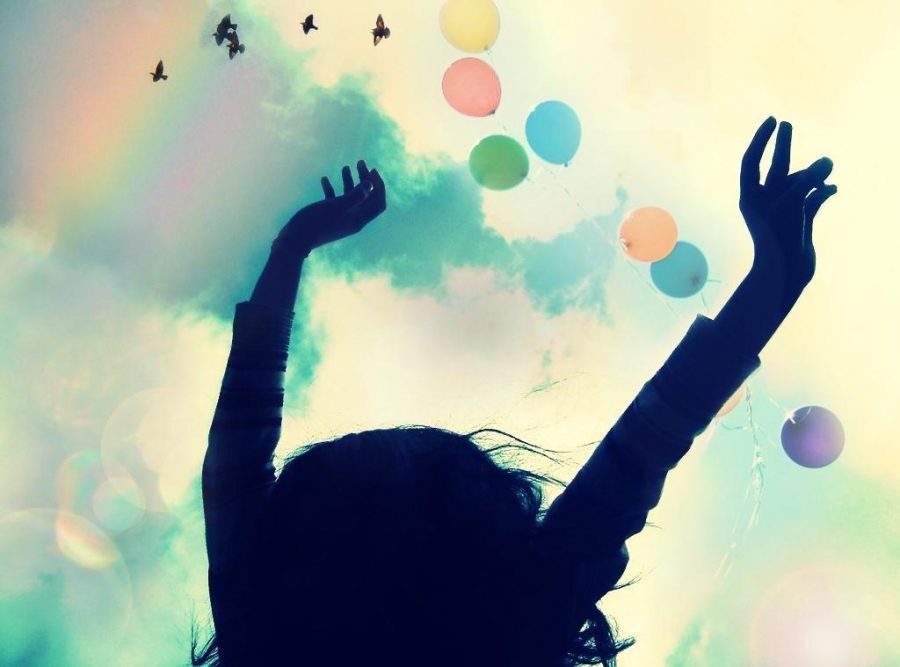Summer break is always the same. The opening few days are filled with me organizing the many dozens of lists I created during the semester. Lists with headings like “Ways to get more organized,” “Books to read in free time” or “How to become more mindful.” Naturally, I organize these lists, stack them on my desk, paperweight them with a brain-sized stone and watch Netflix more or less continuously for five or six days. I let concerns hatched during school — I’m not spending enough time on me, I’m not eating right, I’m not getting enough exercise, I’m not reading enough philosophy, I’m not spending enough time outdoors, I’m ignoring too many friendships, etc. — become secondary to the easy thrill of cheap and infinite entertainment.
More than this, it’s as if there’s some part of me that always wants to do the opposite of whatever it is I’m doing. I watch Netflix, but I pine to be productive. I write this essay and wish, desperately, to be outside. I go outside and want only to curl up with a good book.
If, like me, you find yourself pinging back and forth between motivation and lazy gratification, joy and a shiftier underlying despair that colors most, if not all, otherwise neutral everyday experiences, you may also find it necessary to mine the universe (in its infinite wisdom) for ways to stay on the sides of motivation and joy.
Cue reality TV. Cue movie stars and singers. Cue Vogue and The New Yorker and the NBA Finals and the disaster the U.S. presidency proves itself to be every day. Cue parents. Cue video games and Netflix and network TV. Cue, in some cases, drugs. Cue these things that attack us like popup ads at the periphery of our collective social vision.
Parents call these modes of entertainment institutions and people spewing advice on how to live role models. A kid’s role model has a big part in who that kid will grow up to be: what their morals and values are, who they spend time with, the beliefs with which they approach the world. In essence, their epistemology — their way of knowing.
Today, it seems some role models may have slightly more intrinsic value than others. The good life as it is depicted by the Kardashians is far removed from the good life as it is understood and lived by Buddhist monks. Our celebrity president leads a life far more unconsciously than, say Soren Kierkegaard, Martin Heidegger or Leo Tolstoy. This is not to say that a certain kind of living is automatically better, that the consumerism perpetuated by celebrity brands is any less valuable for analysis than the lengthy, labyrinthine assertions of Jacques Derrida or Michel Foucault. I do believe, however, that there are role models who, with their work, give us more intellectual calories, therefore energy, to tackle the emptiness that comes at us from all angles all the time.
Frustrated in love? Look not to Kim Kardashian’s public and surface affection for her family, but to the words of Albert Camus, who advises on faithfulness and genuine care: “Betrayal answers betrayal,” he wrote, “the mask of love is answered by the disappearance of love.”
Can’t take the long view? Consider Annie Dillard’s reminder: “How we spend our days is, of course, how we spend our lives.”
If loneliness is for you an inveterate affliction, as it is for me, take comfort in the modern urban loneliness of Olivia Laing, whose writing vibrates in us like a Coca-Cola commercial never will, for whom “mere physical proximity is not enough to dispel a sense of internal isolation.” She notes that to be lonely “feels like being hungry.”
There are two facts we must contend with every moment of our lives: we are getting older despite our desire not to, and there’s no one true, right, honest way to act and behave in order to lead a “good life.”
We talk about the problem of time — how it seems to move endlessly forward without our consent. The same is true of our hopes to live a life we feel was well-spent, meaningful, full and beautiful. Like Henry David Thoreau, we wish to “live deliberately” and not, “when [we come] to die, discover that [we] had not lived.”
We cannot be expected to automatically know how to live with joy and contentment. This is especially true if we let the wrong role models determine our attitudes toward wealth, fame, family and personal fulfillment. However, if we let the right sorts of philosophies in, if we take a carefully crafted, thoughtful, critical approach to living based on the wisdom and insight of thinkers that span culture, time and circumstance, we can shed the social and entertaining opiates of the masses. We can stave off that lurking despair everyone feels from time to time with poetry, literature, art, science and philosophy (as opposed to 12 hours of “Keeping Up with the Kardashians”).
I can look at those “To do” lists I’ve got piled on my desk and really think about how I wish to spend this summer. Lazy and dead to the world, or with wisdom, perspective and thought burning in my chest.


